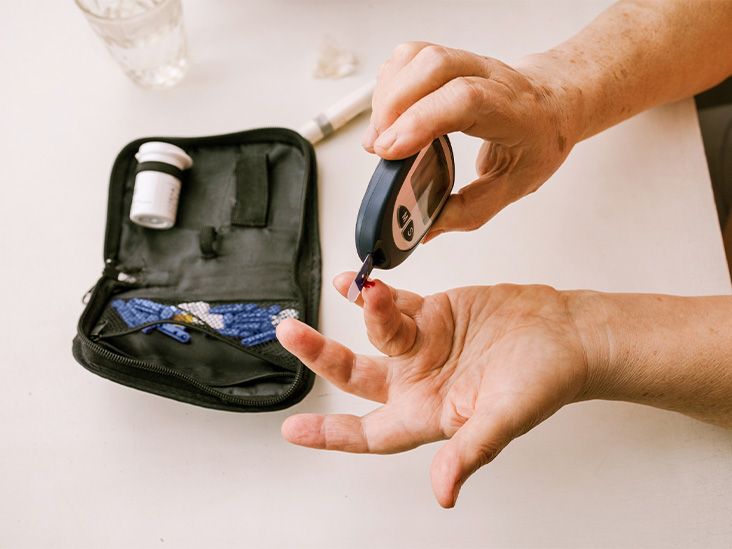Vasectomy is a form of contraception that involves cutting or sealing the tubes that carry sperm from the testicles to the urethra. There is an ongoing debate as to whether vasectomy may increase the risk of prostate cancer.
Some of the most recent research suggests that vasectomy may slightly increase the risk of prostate cancer. However, other current clinical guidelines still state that those who undergo vasectomy are at no greater risk of developing prostate cancer than those who have not had the procedure.

The
A
A 2017 meta-analysis of 53 studies involving more than 14.7 million participants found a slight but almost insignificant association between vasectomy and prostate cancer. The same study showed no association between vasectomy and high-grade, advanced, or fatal prostate cancer.
The study authors concluded that the association between vasectomy and prostate cancer is unlikely to be causal and that it should not discourage individuals from undergoing vasectomy for contraceptive purposes.
A more recent
Contrastingly, a 2022 review and analysis explored the association between vasectomy and prostate cancer risk in 37 studies of more than 16.9 million people.
The study showed a significant association between vasectomy and the risk of developing low-grade, or localized, prostate cancer. However, it is not clear from this study whether vasectomy directly causes prostate cancer.
However, an earlier
The study authors concluded that people considering a vasectomy should discuss the potential risk of prostate cancer with their doctor before undergoing the procedure.
Research limitations
A
As such, rates of prostate cancer detection among people who have undergone a vasectomy are higher than those who have not had the procedure. This may explain the association between vasectomy and increased prostate cancer risk.
However, because screening reduces the risk of advanced and fatal prostate cancer, these types of cancers are likely to be less common among people who have undergone vasectomy than those who have not had the procedure.
This may be why some studies have shown an association between vasectomy and prostate cancer diagnoses but no association between vasectomy and aggressive, advanced, or fatal prostate cancer types.
A 2018 international meta-analysis investigated the effect of vasectomy reversal on prostate cancer risk, using data from five data centers across Australia, Canada, and the United Kingdom.
The study compared the risk of prostate cancer in 9,754 people who had undergone vasectomy reversal and 684,660 people who had undergone a vasectomy without reversal. It found no protective effect of vasectomy reversal on the incidence of prostate cancer.
The American Urological Association (AUA) updated its clinical guidelines on vasectomy in 2015, and they remain in use today.
The guidelines, informed by research findings at that time, stated that those who had a vasectomy were at no greater risk of developing prostate cancer than those who had not had the procedure.
The AUA thus concluded that doctors did not need to discuss any risk of prostate cancer with people considering a vasectomy.
If anyone is concerned about the link between vasectomy and prostate cancer, they can talk with their doctor.
According to the
- Age: The risk of developing prostate cancer rises rapidly after 50 years old, with around
60%Trusted Source of cases occurring in people over 65 years old. - Race and ethnicity: Rates of prostate cancer are higher among African American people and Caribbean people of African ancestry. The disease is also fairly common among non-Hispanic white people and less common among Asian American, Hispanic, and Latino people.
- Family history: Prostate cancer appears to run in some families, suggesting a genetic component.
It is not always possible to prevent prostate cancer because people are unable to control the main risk factors. However, a person can try the following to potentially
- take part in regular physical activity
- achieve and maintain a healthy BMI
- eat a balanced diet including a variety of fruits and vegetables and whole grains
- limit red and processed meats, sugar-sweetened beverages, and highly processed food
- limit calcium intake or calcium supplements
People can also talk with a doctor about the relative risks and benefits of prostate cancer screening with a prostate-specific antigen (PSA) test and rectal examination.
According to the United Kingdom’s National Health Service (NHS), scientists are still not clear on what causes prostate cancer. However, some factors that appear to increase the risk include:
- age, with most cases occurring in men over age 50
- ethnicity, with Black men being most at risk
- family history, in particular, having a close family member who developed prostate cancer before 60 years old
- obesity
- diet, with some evidence suggesting that a diet high in calcium may increase the risk of prostate cancer
There is no evidence to suggest that a vasectomy can lower the risk of prostate cancer.
There is ongoing debate as to whether vasectomy increases the risk of prostate cancer. The AUA last updated its guidelines on vasectomy back in 2015, and these guidelines indicate that people who undergo vasectomy are at no greater risk of developing prostate cancer than those who have not had the procedure.
However, some research suggests a small but statistically significant association between vasectomy and prostate cancer, though it is not clear whether the association is causal. Moreover, some of these studies show no association between vasectomy and aggressive, advanced, or fatal prostate cancer, while others do show such an association.
The difference in findings may be because people who have a vasectomy are more likely to undergo prostate cancer screenings.
Prostate cancer resources
Visit our dedicated hub for more research-backed information and in-depth resources on prostate cancer.

